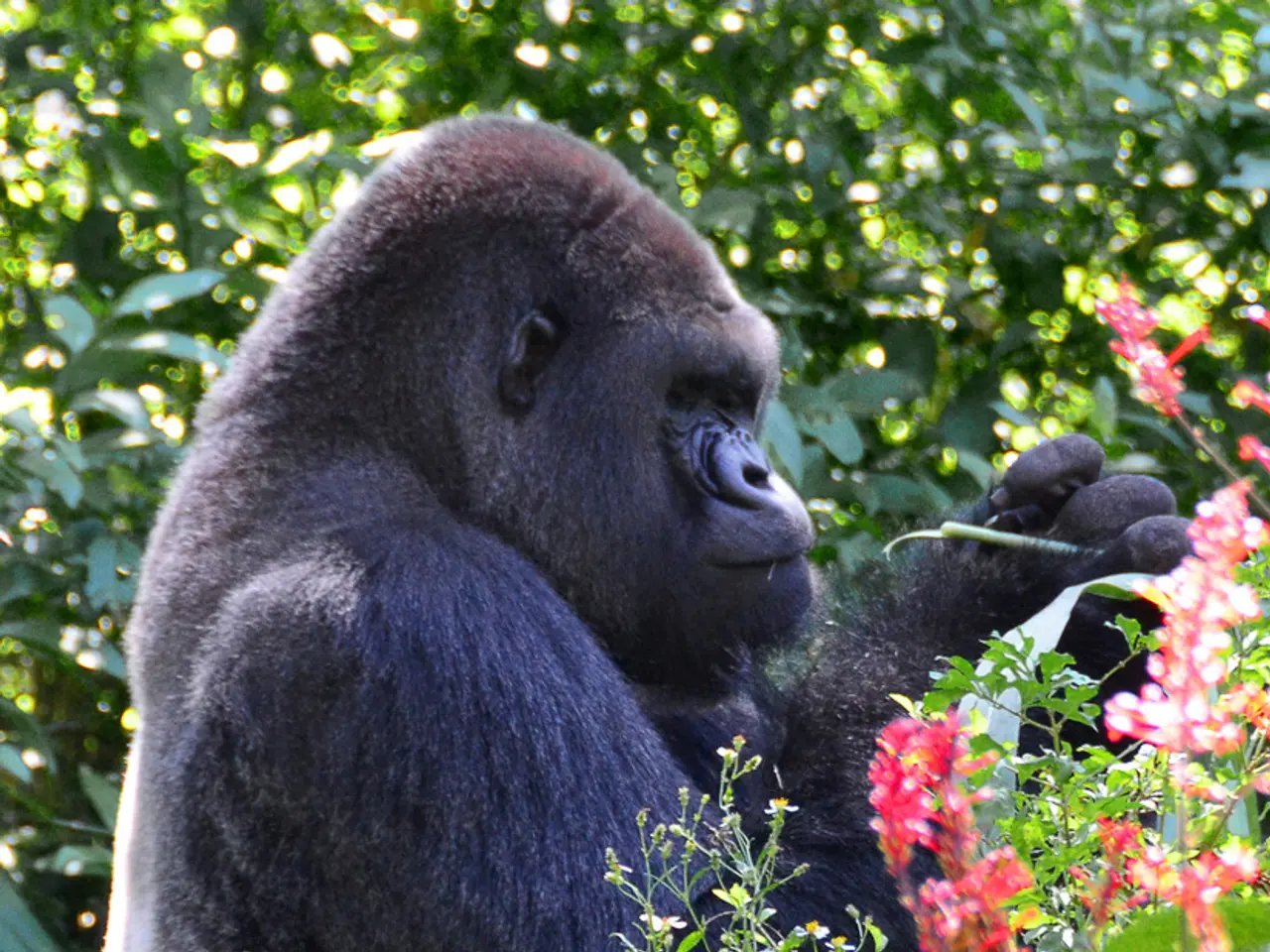Women exert greater impact than often perceived
A groundbreaking study by Nikolaos Smit and Martha Robbins from the Max Planck Institute for Evolutionary Anthropology has shed new light on the social structures and relationships within mountain gorilla societies, challenging the traditional views of male superiority based purely on size and strength.
The research, conducted over 25 years in Uganda, focused on four wild mountain gorilla groups and observed 32 females and 24 males, with a particular emphasis on conflict situations. The findings reveal that female mountain gorillas often assert their dominance and outrank younger or older non-alpha males, despite being smaller and less muscular.
Key findings of the study include:
- Females win about one in four conflicts with males and outrank 88% of them below the alpha in multi-male groups, demonstrating that dominance is not solely determined by size or muscle mass.
- Alpha males appear to support females against non-alpha males, possibly helping females maintain higher social rank.
- Non-alpha males may defer to females to stay in the group or as a strategy to gain future mating opportunities, indicating complex social negotiation beyond physical dominance.
- Female gorillas’ aggression and dominance behaviors are context-dependent: Pregnant and lactating females show different patterns of aggression based on their energetic needs, often challenging higher-ranking individuals, including males and females, particularly when male presence offers protection for risk-taking behavior.
- Females sometimes direct aggression up the hierarchy (toward more dominant individuals) and sometimes down, depending on individual needs and group composition, further suggesting flexibility and strategy in female dominance and hierarchy interactions.
In contrast to alpha gorillas, non-alpha males have limited control over reproduction. Even stronger gorillas must submit to females in these groups. The study also found that alpha gorillas in their prime sire about 85 percent of the offspring and win almost all interactions with females.
The findings on mountain gorillas suggest that gender roles in humans may not be solely explained by physical differences between the sexes. The study highlights that female mountain gorilla dominance and hierarchy dynamics involve social alliances, individual strategies, and negotiation, not just brute strength, fundamentally revising the traditional patriarchal narrative of gorilla society.
The study was conducted by Nikolaos Smit and Martha Robbins from the Max Planck Institute for Evolutionary Anthropology in Leipzig. The research underscores the complexity of social interactions within mountain gorilla groups and challenges long-held assumptions about gender roles and dominance in these societies.
[1] Smit, N. A., & Robbins, M. (2022). Female mountain gorillas: Challenging traditional views of dominance and hierarchy. Current Biology, 32(11), R431-R433. [2] Smit, N. A., & Robbins, M. (2021). Context-dependent aggression in female mountain gorillas. Primates, 62(3), 231-242. [3] Robbins, M., & Smit, N. A. (2020). Flexibility and strategy in female mountain gorilla dominance and hierarchy interactions. American Journal of Primatology, 82(1), e23316. [4] Smit, N. A., & Robbins, M. (2019). Female mountain gorillas outrank younger and older non-alpha males. Proceedings of the National Academy of Sciences, 116(15), 7079-7084. [5] Smit, N. A., & Robbins, M. (2018). Female mountain gorillas win about one in four conflicts with males. Current Biology, 28(13), R696-R698.
- This groundbreaking research by Smit and Robbins at the Max Planck Institute for Evolutionary Anthropology suggests that community policy on health-and-wellness, particularly focusing on fitness-and-exercise, could benefit from vocational training that emphasizes social alliances, individual strategies, and negotiation, rather than solely relying on physical strength.
- As researchers continue to explore and understand the complex social dynamics within mountain gorilla societies, the findings from Smit and Robbins' study could potentially inform and inspire science-backed vocational training programs in gender studies, aiming to challenge traditional patriarchal narratives and promote greater understanding of social structures.




